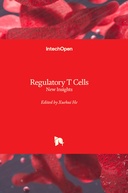Explore

In healthy humans, effector immune cells are activated by the presence of pathogens. Various signaling pathways coordinate the growth and proliferation of the immune cells to fight the invading pathogen and keep the host healthy. A portion of white blood cells known as regulatory T cells (Treg) help to control the rapid proliferation of effector immune cells including effector T cells as well as antigen-presenting cells to make sure the inflammation is kept in check. When Treg cells are depleted or undergo loss of suppressive functionality, hyperinflammatory disease results. However, Treg depletion can also provoke and enhance tumor immunity. Therefore, targeting Treg cells is a promising approach for both autoimmune disease and cancer immunotherapy. To attenuate or enhance Treg-mediated immune suppression, it is necessary to find a specific molecular marker that can selectively and reliably differentiate between Treg and effector T cells. Further elucidation of the cellular and molecular processes underlying the development and function of regulatory immune cells will help to establish new strategies for the treatment and prevention of immune-mediated disease.
This book is included in DOAB.
Why read this book? Have your say.
You must be logged in to comment.
